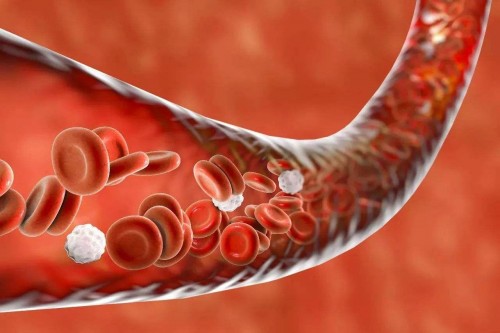Pemeriksaan fungsi ginjal adalah serangkaian tes yang dilakukan untuk menilai sejauh mana ginjal berfungsi dengan baik. Ginjal adalah organ vital yang bertanggung jawab untuk menyaring limbah dan kelebihan cairan dari darah, yang kemudian dikeluarkan melalui urine. Pemeriksaan fungsi ginjal biasanya meliputi pengukuran kadar asam urat, ureum, dan kreatinin dalam darah.
- Asam Urat
Asam urat adalah produk akhir dari metabolisme purin, yang ditemukan dalam berbagai makanan. Biasanya, asam urat larut dalam darah dan dieliminasi melalui ginjal. Kadar asam urat yang tinggi dapat menunjukkan bahwa ginjal tidak dapat membuangnya dengan efektif, yang bisa menyebabkan kondisi seperti gout atau batu ginjal.
- Ureum
Ureum adalah produk limbah yang dihasilkan dari metabolisme protein. Ginjal bertanggung jawab untuk membuang ureum dari darah dan mengeluarkannya melalui urine. Kadar ureum yang tinggi dalam darah bisa menunjukkan bahwa ginjal tidak bekerja dengan baik atau adanya kondisi medis lainnya yang mempengaruhi metabolisme protein.
- Kreatinin
Kreatinin adalah produk limbah dari pemecahan kreatin, yang digunakan oleh otot untuk energi. Karena produksi kreatinin dalam tubuh stabil dari hari ke hari, kadar kreatinin dalam darah adalah indikator yang baik untuk fungsi ginjal. Ginjal yang sehat akan menyaring kreatinin dari darah dan mengeluarkannya melalui urine. Kadar kreatinin yang tinggi bisa menunjukkan gangguan pada fungsi ginjal.

Fungsi Pemeriksaan Fungsi Ginjal
Pemeriksaan fungsi ginjal berfungsi untuk:
- Menilai Kesehatan Ginjal: Mengetahui seberapa baik ginjal berfungsi dalam menyaring limbah dari darah.
- Mendiagnosis Penyakit Ginjal: Mendeteksi adanya gangguan ginjal pada tahap awal sebelum timbulnya gejala klinis.
- Memantau Perkembangan Penyakit: Melacak perkembangan penyakit ginjal dan efektivitas pengobatan.
- Menilai Efek Obat: Mengevaluasi dampak obat-obatan tertentu yang mungkin berpengaruh pada fungsi ginjal.
- Perencanaan Pengobatan: Membantu dalam perencanaan pengobatan yang tepat untuk pasien dengan gangguan ginjal.
Pentingnya Pemeriksaan Fungsi Ginjal
- Deteksi Dini: Pemeriksaan fungsi ginjal memungkinkan deteksi dini masalah ginjal, yang penting untuk mencegah kerusakan lebih lanjut dan komplikasi serius.
- Pengelolaan Penyakit Kronis: Membantu dalam pengelolaan kondisi kronis seperti diabetes dan hipertensi yang dapat mempengaruhi kesehatan ginjal.
- Meningkatkan Kualitas Hidup: Dengan mengetahui kondisi ginjal, pasien dapat mengambil langkah-langkah preventif dan pengobatan yang dapat meningkatkan kualitas hidup mereka.
- Pencegahan Komplikasi: Pemeriksaan rutin dapat mencegah komplikasi seperti gagal ginjal akut atau kronis yang memerlukan dialisis atau transplantasi ginjal.
- Penggunaan Obat yang Aman: Memastikan bahwa obat-obatan yang dikonsumsi pasien tidak merusak fungsi ginjal atau bahwa dosisnya disesuaikan dengan kondisi ginjal pasien.
Secara keseluruhan, pemeriksaan fungsi ginjal sangat penting untuk menjaga kesehatan ginjal dan mencegah berbagai komplikasi yang berpotensi mengancam nyawa. Dengan pemantauan yang tepat, banyak masalah ginjal dapat dikelola atau dicegah dengan lebih efektif.
Untuk dapat mendeteksi kelainan pada ginjal terdapat beberapa jenis alat IVD yang dapat membantu dokter dan tenaga medis untuk dapat melakukan penegakan diagnosis terkait dengan kerusakan fungsi ginjal. Isotekindo sendiri memiliki beragam jenis alat yang dapat bermanfaat untuk pemeriksaan fungsi ginjal, mulai dari PABA 1000 - ACR (microalbumin creatinine ratio) Analyzer yang berfungsi mendeteksi fungsi ginjal dengan sampel urine sewaktu, iCare-2100 - Multi Function Analyzer khususnya untuk panel fungsi ginjal (Urea/Creatinine/Uric Acid), ataupun alat FortaceDx k00 dan k200 - Chemistry Analyzer yang sudah memiliki NIE AKD dan persentase TKDN sebesar 40%.
Sumber:
- National Institute of Diabetes and Digestive and Kidney Diseases. (2020). Testing for Kidney Disease.
- American Kidney Fund. (2020). Kidney Function Tests.







